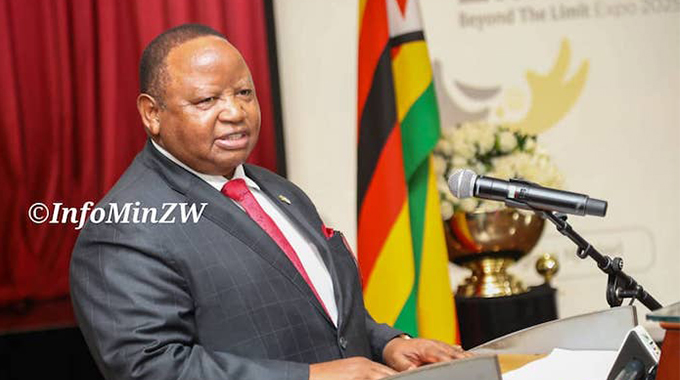Government explains free education policy… School fees reprieve for disadvantaged rural pupils

Nqobile Tshili, Chronicle Reporter
GOVERNMENT will gradually start implementing its State-funded free education policy when schools open for the first term next week with mostly disadvantaged rural schools being the first beneficiaries of the programme, a senior Government official has said.
Schools will open for the first term of the year on Monday amid high hopes for smooth learning this time around with no disruption from Covid-19 restrictions.
Parents and guardians have already started making final preparations for the new term by buying uniforms and stationery, among other logistics.
In line with the national budget guidelines, officials from the Ministry of Primary and Secondary Education and those from the Treasury are expected to meet next week to deliberate on how financial resources will be channeled to buttress the implementation of the free education policy.
Already, Government has set the pace towards this noble cause by supporting two million disadvantaged learners whose fees are paid for under the Basic Education Assistance Module (BEAM) from the estimated 6,7 million pupil population.
Presenting the 2023 National Budget, Finance and Economic Development Minister, Professor Mthuli Ncube, said improved Treasury allocations for education were in line with the constitutional requirement that every child has a right to basic education. He said Treasury increased direct budgetary allocation to enable the free basic education policy.
Part of the implementation of the free basic education policy has seen the Government subsidising the payment of Zimbabwe School Examinations Council (Zimsec) registration fees by up to 55 percent for every learner while fully paying the fees for those pupils under BEAM.

Finance and Economic Development Minister, Professor Mthuli Ncube
In an interview yesterday, Primary and Secondary Education Deputy Minister Edgar Moyo said Government is gradually implementing the free education policy and expectations are that more learners will benefit this year.
“The free education effort is not starting this year. It has been building up for some time. As for Matabeleland South, I know that two districts, Mangwe and Beitbridge pioneered the issue of free education and it was two districts across the country’s rural provinces where Government was fully paying for learners,” he said.
“We have been gradually increasing BEAM beneficiaries, which is also another angle of Government-funded education.”
Deputy Minister Moyo said Government has been clear on the road map for the adoption of State-funded education and that more rural learners are expected to benefit in the long run, starting with selected disadvantaged schools in rural areas.
“In our statement last year, we highlighted that it is not going to be everyone who will be covered. It is going to be a phased approach, beginning with the most disadvantaged communities classified under our systems and coded as P3, which are the rural primary schools, and S3, rural secondary schools,” he said.
“Our efforts are going to be targeted at those areas and gradually we are going to realise full State-funded education. We have started through BEAM and the pilot program where two districts were covered.
“We will gradually begin, with the most disadvantaged schools and moving up the ladder until we are able to cover the whole population.”
The Deputy Minister said it was important for communities to understand that when Government talks about a free education policy, it does not mean education will be totally free as the State will be assisting appropriately.
He said the disasters that have affected the country since 2019 have had a negative impact on the implementation of the constitutional requirement.
“A lot of these things were delayed as a result of Covid-19 and Cyclone Idai, which were not planned for. This led to a lot of resources being channeled to deal with such and has reduced the capacity of Government,” he explained.
“Those were huge and catastrophic occurrences, which affected budget rollout. We then had last year where things started to operate normally in the education sector.”
Commenting, Public Service, Labour, and Social Welfare Deputy Minister Lovemore Matuke said critical to the gradual implementation of the free education policy is that pupils who are not benefitting under the BEAM programme will also benefit.
“It will give every child an equal chance to access education. While Government has BEAM, which mainly catered for vulnerable pupils, the implementation of this policy will see even disadvantaged learners who did not qualify under BEAM, also being embraced under the same programme,” he said.
Cde Matuke said the implementation of the policy will also bring relief to some parents who were struggling to pay fees. National Association of Secondary Heads (Nash) president, Mr Arthur Maphosa, said schools have seen at firsthand the impact of the gradual implementation of the free school fees policy.

Deputy Minister of Public Service, Labour and Social Welfare, Lovemore Matuke
“This is a significant program that complements BEAM, which has assisted a lot of disadvantaged pupils. I can say this was witnessed in 2022 when every candidate who wanted to write public examinations did not fail to sit for the exams,” he said.
“If the candidate failed to write the examination it would be because of their choice as school dropouts and not the responsibility of the Government and schools, as funds had been availed,” said Mr Maphosa.
He said he was looking forward to more learners benefitting from the policy in line with Government’s policy of not leaving any child behind in terms of access to education.
Mr Maphosa said the gradual implementation of the free education policy is not a myth and Government should be supported in its adoption.
“It has been piloted in some areas and we support the gradual implementation of the policy. However, my appeal is that the Government should assist the schools that are implementing the policy by timeously disbursing funds for the day today of schools,” said Mr Maphosa.
– @nqotshili












Comments